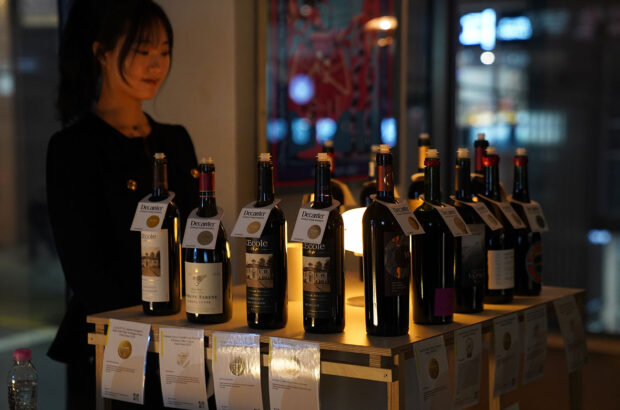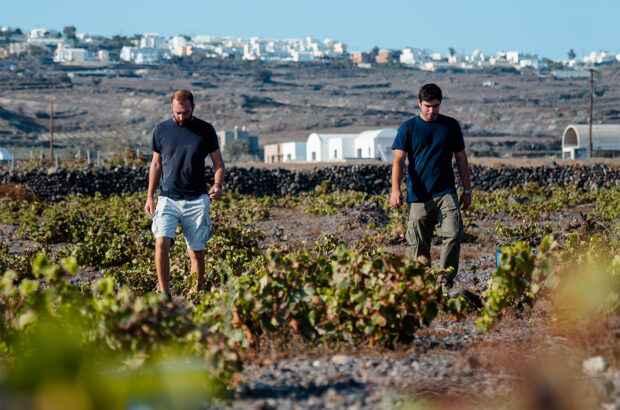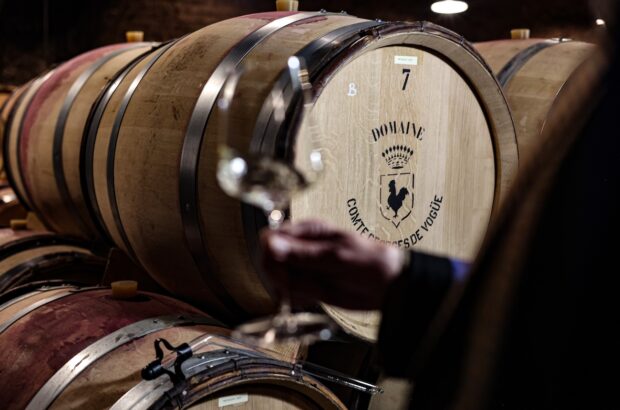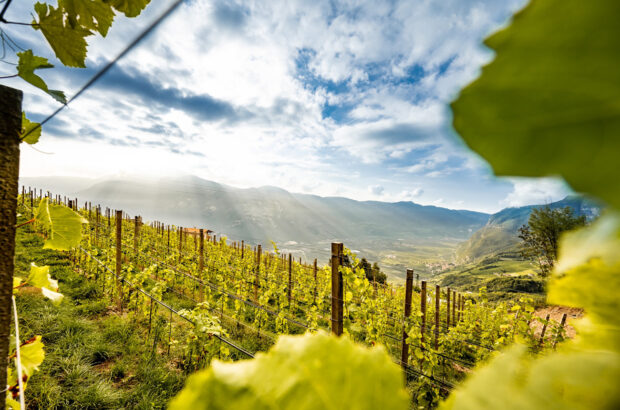Biodynamics is not just for winemakers – wine lovers are now being encouraged to plan their drinking by the lunar calendar. christelle guibert considers whether wines really can taste different on different days of the year
Do you have a favourite wine – one that you turn to again and again? Do you find that it tastes better on some days than on others? We’re not talking about faulty, or corked wines, or even bottle variation. Rather, we’re asking why the same wine can sometimes taste differently on different days. It’s a question that has been increasingly on many expert wine tasters’ – and drinkers’ – minds.
German-born Maria Thun and her son Matthias believe the answer lies in the moon. Maria has gardened all her life and is an authority on biodynamics; she publishes an annual biodynamic sowing and planting calendar translated into 18 languages to advise gardeners on when to carry out their chores. Based on more than 55 years of biodynamic research and experimentation, she has now published a biodynamic calendar (2010 was the first) for wine drinkers, advising when wines are likely to be at their best.
Thun works out the year’s calendar, considering all aspects of lunar and solar cycles, constellations and the movement of other planets, and has broken it down into ‘fruit’, ‘flower’, ‘leaf’ and ‘root’ days. Fruit and flower days are considered the best for drinking wine, according to biodynamic producers and several notable industry players. (Marks & Spencer and Tesco are among the UK retailers who now consult the biodynamic calendar before scheduling their press tastings.)
Biodynamicists see wine as a living organism which responds to the moon’s rhythms in a similar way to the human body. We’ve all heard stories about how crime and violence rise on a full moon and more babies are conceived on a waxing moon (moving towards a full moon), but many scientists and social anthropologists remain sceptical. Studies tend to be inconsistent and many commentators dismiss them as dictated more by superstitious beliefs than science.
There’s no doubt that this is a hot topic. Recent years have seen an increase in biodynamic practices, not least in the wine industry, with more and more producers looking to biodynamics in the vineyard. Next month, Pontet-Canet in Pauillac is expected to become the first Bordeaux classed growth certified as wholly biodynamic. For many, it is now a way of life rather than just a trend.
I’m not going to pretend to be an expert on biodynamics – far from it. I prefer to look at it from a wider perspective. To be honest, I’m in two minds; I taste and review wines daily, and I strongly believe that wines taste different on different occasions; but there are a multitude of factors that can affect our ability to taste before we land on biodynamic beliefs.
Last year, Marks & Spencer organised a tasting to gauge whether wines were perceived differently on fruit or root days. The company’s resident winemaker Jo Ahearne MW has been a biodynamic convert for the past four years, and claims that ‘on fruit days, the aromatics in the whites are more present and the tannins in the reds are suppler; on a root day, the fruit flavour is muted and the tannins are harsher.’
Ahearne assembled a group of tasters and asked them to taste the same wines on two different days, note any differences and guess which day was the fruit day. I must confess, at the end of the tasting I agreed with her. Reviewing my notes, most of the wines had similar scores, but I found the reds greener and harsher on the root day and the whites more expressive and aromatic on the fruit day.
Judgment day
Did the biodynamic calendar cause these anomalies? For me, the biggest discrepancy on the two August days was the weather. The fruit day was warm and sunny but two days later, on the root day, though the wines were served slightly warmer, the weather turned muggy. Did the weather create this bottle variation?
The atmospheric pressure? Or was it just the mood I was in? It has been scientifically proven that sunny days make us feel more optimistic, give us energy and improve our attitude. Maybe I felt more positive on that day and tasted accordingly?
Several merchants have been won over by Ahearne’s argument and plan all their tastings according to the lunar calendar; Eric Narioo, founder of Cave de Pyrène, which specialises in biodynamic and organic wines, started looking into the idea eight years ago for his range of wines. ‘I can’t explain it, but I taste wines three times a week and I’ve found that natural wines are much more sensitive to fruit and root days than made-to-recipe wines.’
But Narioo adds that ‘so many other factors need to be taken into account – the weather, the location, the mood, the circumstance…’ Although he’s never done any formal experiment, wine scientist and blogger Jamie Goode of www.wineanorak.com believes a large part of this variability could be with the taster and his physiology.
‘I don’t understand all the intricacies of the biodynamic calendar,’ he says, ‘but I wouldn’t dismiss it. I can see how lunar cycles might have some effect, but so might atmospheric pressure and the general context of the tasting. And knowing what day it is could have a priming effect on tasters. Extraordinary claims require extraordinary proof, and I think the onus is on these believers to show some convincing evidence of its efficacy before the rest of us accept it as a useful tool.’
I, for one, am determined to look at it in more detail. In the next few months, I will be setting up a series of comprehensive tastings at Decanter looking at fruit and root days and taking into account the weather. Who knows, we may not draw any conclusion, but it will be an fascinating experiment. We’ll be sure to share the feedback with you.
Written by Christelle Guibert






